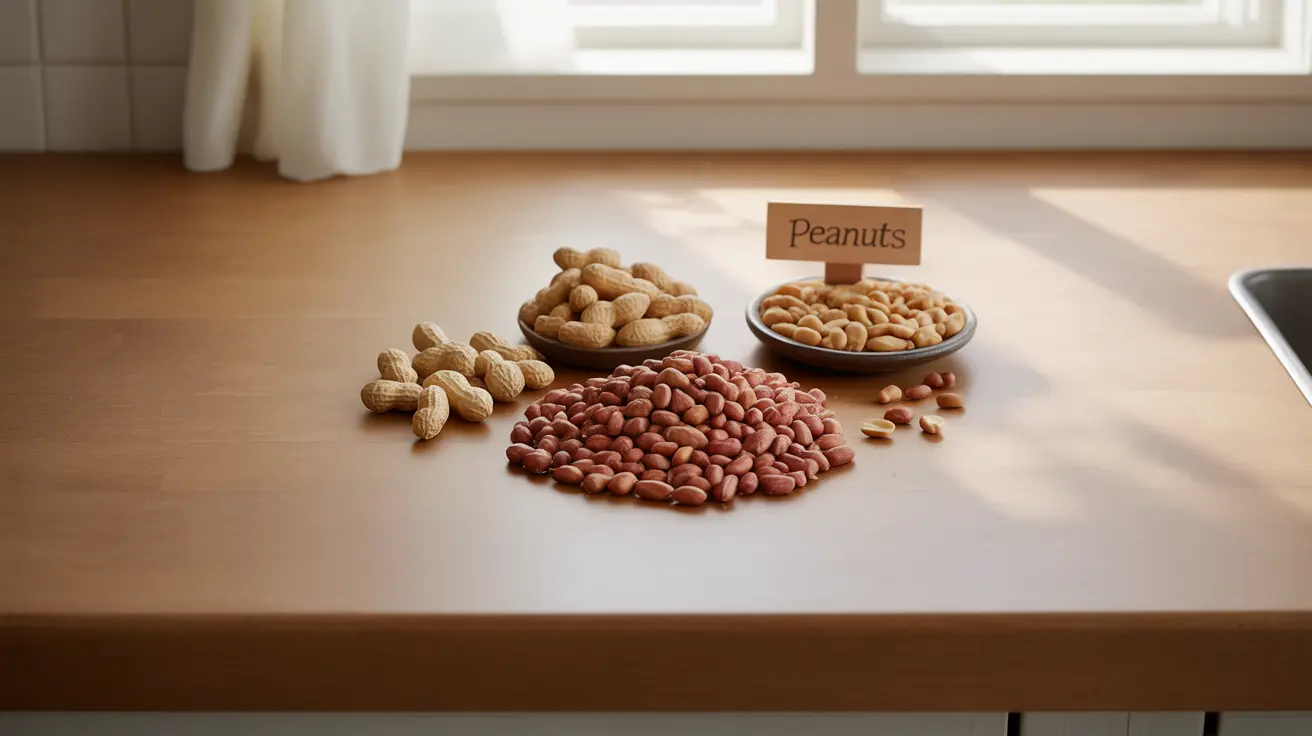Despite their small size, peanuts pack a powerful nutritional punch and offer numerous health benefits. While technically legumes rather than true nuts, these popular snacks have earned their place as a nutritious food choice that can support overall health and wellness when consumed as part of a balanced diet.
Understanding the health implications of including peanuts in your diet is crucial for making informed dietary choices. Let's explore the scientific evidence behind peanuts' health benefits and address common concerns about their consumption.
Nutritional Profile of Peanuts
Peanuts are nutrient-dense powerhouses containing an impressive array of essential vitamins, minerals, and beneficial compounds:
- Protein: 7-8 grams per ounce
- Healthy fats (mostly monounsaturated)
- Fiber
- Vitamin E
- B vitamins (including folate)
- Minerals (magnesium, phosphorus, zinc)
- Antioxidants (resveratrol, flavonoids)
Weight Management Benefits
Contrary to what many might expect from their caloric density, peanuts can be an excellent addition to a weight management plan. Their combination of protein, healthy fats, and fiber helps promote satiety, potentially reducing overall calorie intake throughout the day.
Research suggests that regular peanut consumers tend to maintain healthier body weights despite the food's high caloric content. This paradox is partly explained by the body's limited absorption of all calories from whole peanuts and their strong impact on hunger control.
Heart Health Advantages
Peanuts offer significant cardiovascular benefits through multiple mechanisms:
- Lowering LDL (bad) cholesterol
- Improving HDL (good) cholesterol levels
- Reducing inflammation
- Supporting healthy blood pressure
The monounsaturated and polyunsaturated fats in peanuts, combined with their arginine content, contribute to improved heart health markers when consumed regularly.
Blood Sugar Control
For individuals with diabetes or those concerned about blood sugar management, peanuts can be a valuable dietary component. Their low glycemic index and combination of protein, healthy fats, and fiber help prevent sharp blood sugar spikes after meals.
Processing Effects on Nutrition
The way peanuts are prepared can affect their nutritional value:
- Raw peanuts: Highest nutrient retention
- Dry-roasted: Minimal nutrient loss
- Oil-roasted: May add extra calories
- Salted varieties: Higher sodium content
Frequently Asked Questions
Are peanuts good for weight management despite being high in calories?
Yes, peanuts can support weight management despite their caloric density. Their high protein and fiber content promotes satiety, potentially leading to reduced overall calorie intake. Studies show that regular peanut consumers tend to maintain healthier body weights due to improved appetite control and incomplete calorie absorption.
How do peanuts support heart health and reduce cholesterol levels?
Peanuts support heart health through their healthy fat profile, particularly monounsaturated fats, which help lower LDL cholesterol while maintaining HDL levels. They also contain heart-healthy compounds like resveratrol and arginine that support cardiovascular function.
What are the nutritional benefits of eating peanuts regularly?
Regular peanut consumption provides essential nutrients including protein, healthy fats, fiber, vitamins (E and B complex), minerals (magnesium, phosphorus), and antioxidants. These nutrients support overall health, immune function, and cellular repair.
Are salted or roasted peanuts less healthy than raw or unsalted peanuts?
While raw and unsalted peanuts offer the most natural nutritional profile, roasted peanuts retain most of their nutritional benefits. The main concern with salted varieties is increased sodium intake. Dry-roasted peanuts are a better choice than oil-roasted options, which contain additional calories.
Can people with diabetes safely include peanuts in their diet?
Yes, people with diabetes can safely and beneficially include peanuts in their diet. Their low glycemic index and combination of protein, healthy fats, and fiber help stabilize blood sugar levels. Regular peanut consumption may even help improve long-term blood sugar control.




